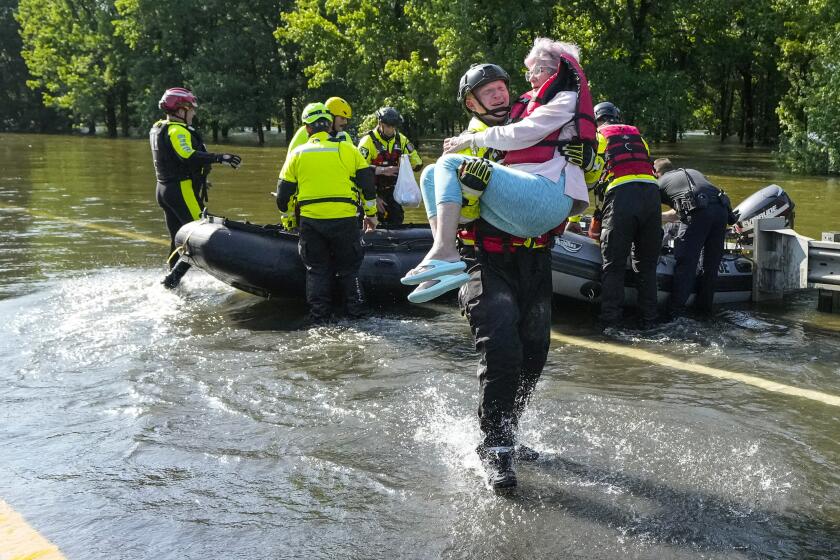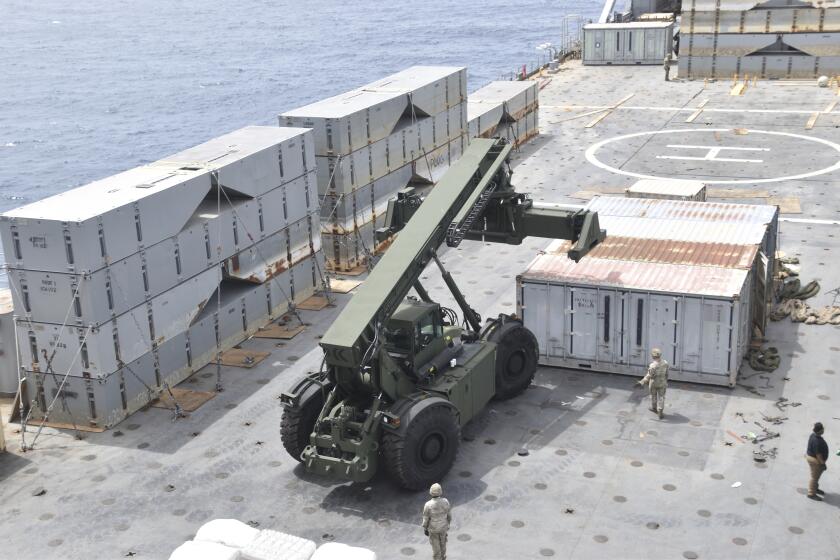Japan Firms Lack Adequate Crisis Plans, Critics Say
The recent kidnapping of a Japanese executive in Tijuana has kicked up a public debate over the continuing difficulties of Japanese corporations in managing crises.
Despite rising crime and terrorism both here and abroad, Japanese firms still lack the crisis management systems, security executives and intelligence services that most major Western firms take for granted, analysts say.
“These types of things don’t attract much attention because this type of kidnapping doesn’t happen in Japan,” said Mitsuru Shinozaki of the Keidanran, Japan’s leading business organization. “We are too peaceful.”
A spate of kidnappings and other crimes directed at Japanese abroad in the last few years--along with last year’s Kobe earthquake and sarin-gas subway attack--have heightened security awareness here. About 690,000 Japanese live abroad, and more than 15 million trips are made annually; last year, more than 11,000 crimes and other troubles were reported to Japanese consulates around the world.
But so far, corporate Japan’s major response has been to compile safety manuals.
According to a 1994 survey by the Japan Overseas Industry Assn., 48% of 217 firms surveyed had compiled safety manuals but more than half had no crisis-management plan. Only one-fifth had identified a person or division to take the lead in a crisis.
“In Japan, the crisis management office is a dirty little office with a couple of guys who sleep there at night,” said one security director for a foreign firm in Japan. “Yes, they have security guards, but they don’t have the strategic planning or know-how to deal with significant incidents which could cause severe harm to the company.”
The Sanyo electronics group--whose executive Mamoru Konno was abducted at gunpoint Saturday as he left a company baseball game in Tijuana and is still missing--compiled a safety manual in 1991. The group also operates a training center to help prepare employees for overseas assignments, but the instruction includes such general information as language lessons, technical training and health conditions, spokesman Yoichi Tatsuta said.
Tatsuta said crisis management is handled by the personnel department as one of many responsibilities.
Western firms tend to take far more extensive measures.
One major foreign firm in Tokyo, for instance, employs a security director, has established a formal crisis-management team and has identified in advance key health, environmental, government and media resources to contact in a crisis.
The firm has also trained its media spokesperson, gives seminars to employees and contracts with an international security consultant, U.S.-based Kroll Associates, to provide regular intelligence reports on trouble spots around the world.
Under the firm’s policy, every single “provocation”--which could include something that’s little more than a nasty phone call--is reported to the security director. In cases deemed potentially harmful, the director convenes the crisis team, including legal and personnel executives, to assess the risk. Sometimes the provocation is reported to police; other times, a targeted employee’s family members are briefed on how to protect themselves, the security director said.
But such systems are rare in Japan--and few firms appear ready to introduce them. According to the Japan Overseas Industry Assn. survey, the top security priorities were compiling lists of employees abroad and gathering information about overseas safety conditions. The activities with the lowest priorities were training a crisis manager, educating overseas employees and expanding the security budget. Asked to name the biggest obstacle to improving security, “I don’t know,” at 39%, was the most common response.
But some Japanese firms have taken serious steps to improve their security policies. The Mitsui Bussan trading company, for instance, established a crisis management team, began analyzing risks and training its overseas employees after one of its executives, Nobuyuki Wakaoji, was kidnapped in the Philippines in 1986. That incident shocked Japan, as it was the first to underscore the vulnerability of its people to the dangers in other, less safe, parts of the world.
In contrast, Fuji Photo Film Co. only compiled a safety manual and video after gangsters assassinated one of its executives a few years ago. The company has not appointed any particular crisis manager, a spokesperson said.
Many firms balk at the cost of comprehensive security systems. Kroll’s Tokyo office, for instance, charges $20,000 to $35,000 a year for services such as a customized risk management plan; simulation seminars on everything from a kidnapping to a chemical spill to a labor crisis; daily intelligence briefings by fax; and monthly risk profiles on countries around the world.
Although Kroll has increased its Tokyo staff to six from one since opening here in 1992, business growth has been modest, said director Fred Schmidt.
“There is growing awareness, but Japanese traditionally think that information and safety are free,” Schmidt said.
Japanese also are accustomed to expecting protection from a paternalistic state rather than taking the initiative to protect themselves, said Daisaburo Hashizume, a Tokyo Institute of Technology professor.
Thus, the media hubbub over Japan’s “naivete” about crisis management after the Kobe earthquake and sarin-gas attack has largely died down--and observers here believe the current debate sparked by Konno’s kidnapping will also pass.
“Japanese are easy to heat up and easy to cool down,” Shinozaki said. “The [Konno] case will, of course, push up the level of security awareness, but how long it will last I don’t know.”
More to Read
Start your day right
Sign up for Essential California for news, features and recommendations from the L.A. Times and beyond in your inbox six days a week.
You may occasionally receive promotional content from the Los Angeles Times.







